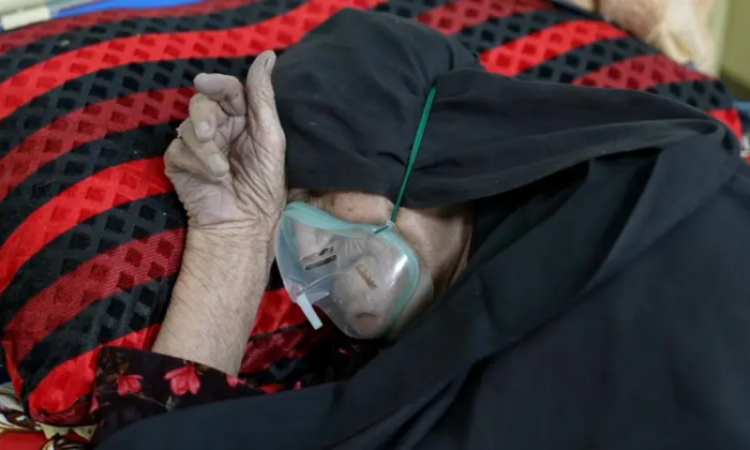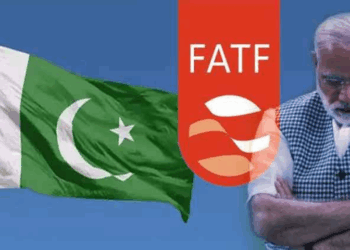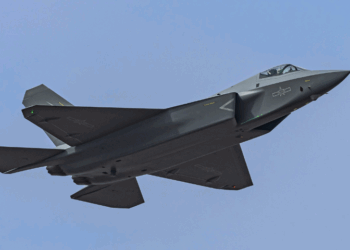Parachinar, Kurram District, December 20, 2024: Sectarian violence in Kurram District has claimed over 200 lives this year, while ongoing tensions have led to the closure of key roads connecting Parachinar, the district’s capital, to the rest of Pakistan. According to a BBC Urdu report on Friday, the blockade has caused acute shortages of medicines, food, and essential supplies in the region.
A BBC Urdu team visiting the area relied on the Edhi Foundation’s air ambulance service to access Parachinar, as roads remain impassable. The foundation has been delivering life-saving medicines by air, providing temporary relief to the affected population.
The once-beautiful Parachinar, surrounded by poplar trees and snow-capped mountains, now bears the scars of unending sectarian strife. Conversations with locals and observations on the ground reveal widespread insecurity and severe difficulties in accessing even the most basic necessities.
In the town’s main market, a man was seen searching for a nipple for a baby feeder but returned empty-handed due to the unavailability of goods. Similar scenes were evident at the district headquarters hospital, where medical staff are unable to assist patients effectively because of a dire shortage of medicines.
Health crisis deepens
The Medical Superintendent of the District Headquarters Hospital, Syed Mir Hassan Jan, reported that 29 children have died in the past two months due to the lack of medicines and oxygen caused by the road closures. Although independent verification of these figures is pending, they highlight the region’s worsening health crisis.
Ajmal Hussain, a resident from a remote village 62 kilometers away, described his struggle to reach the hospital over rugged terrain. Despite receiving a diagnosis for his kidney condition, he was unable to find the prescribed medicines after hours of searching.
Similarly, Ali Raza, a local resident, shared that his aunt, suffering from kidney failure, remains untreated due to a lack of medicines and the inability to transport her to Peshawar for advanced care.
Impact of road closures
The road blockade has crippled supply chains, leaving medical stores devoid of essential drugs like antibiotics, insulin, and heart medication. Khurshid Anwar, a wholesale medicine supplier, emphasized the severity of the situation, saying, “If my wholesale store is empty, imagine the condition of regular medical stores.”
The shortages extend beyond medicines. Daily essentials like fuel, heating materials, and food have also become scarce. Parachinar’s markets now stock only locally grown vegetables, with staples such as pulses, sugar, and ghee in short supply. Children’s food items, including powdered milk and baby cereal, are virtually unavailable.
Fuel shortages have further paralyzed the region, disrupting transportation and exacerbating the isolation of affected communities.
Violence escalates
The latest wave of sectarian violence began in October, following an attack on a convoy of Sunni tribespeople that killed 16. A subsequent retaliatory attack on a Shia convoy claimed over 50 lives, triggering widespread clashes between the two communities. The violence has left numerous dead and worsened the region’s humanitarian crisis.
Defense Minister Khawaja Asif has attributed the unrest to external interference, alleging that “sectarian strife is being fueled from across the border in Afghanistan, with Taliban support.”
Relief efforts and challenges
The Edhi Foundation and the Khyber Pakhtunkhwa government have been airlifting medicines to Kurram, though Faisal Edhi, head of the foundation, has called this a “temporary solution.” He lamented the unavailability of even basic medicines like paracetamol in the region.
On Friday, KP Health Advisor Ehtesham Ali announced plans to airlift a substantial consignment of medicines after completing legal and logistical formalities. The delivery is scheduled for Saturday.
Despite these efforts, the situation remains dire. Residents and relief workers have urged Sunni and Shia tribes to reconcile and reopen roads, enabling the resumption of normal life and the delivery of essential supplies.
A history of conflict
Situated approximately 100 kilometers from Kabul, Parachinar has long been a flashpoint for sectarian tensions. These conflicts intensified following the establishment of the Tehreek-e-Taliban Pakistan (TTP) in the mid-2000s and were further fueled by cross-border migration and insurgency after the U.S.-led invasion of Afghanistan.
Pakistan’s federal and provincial governments are working to restore security and reopen roads, but progress has been slow. Meanwhile, the residents of Kurram District continue to endure severe hardships amid the ongoing crisis.








